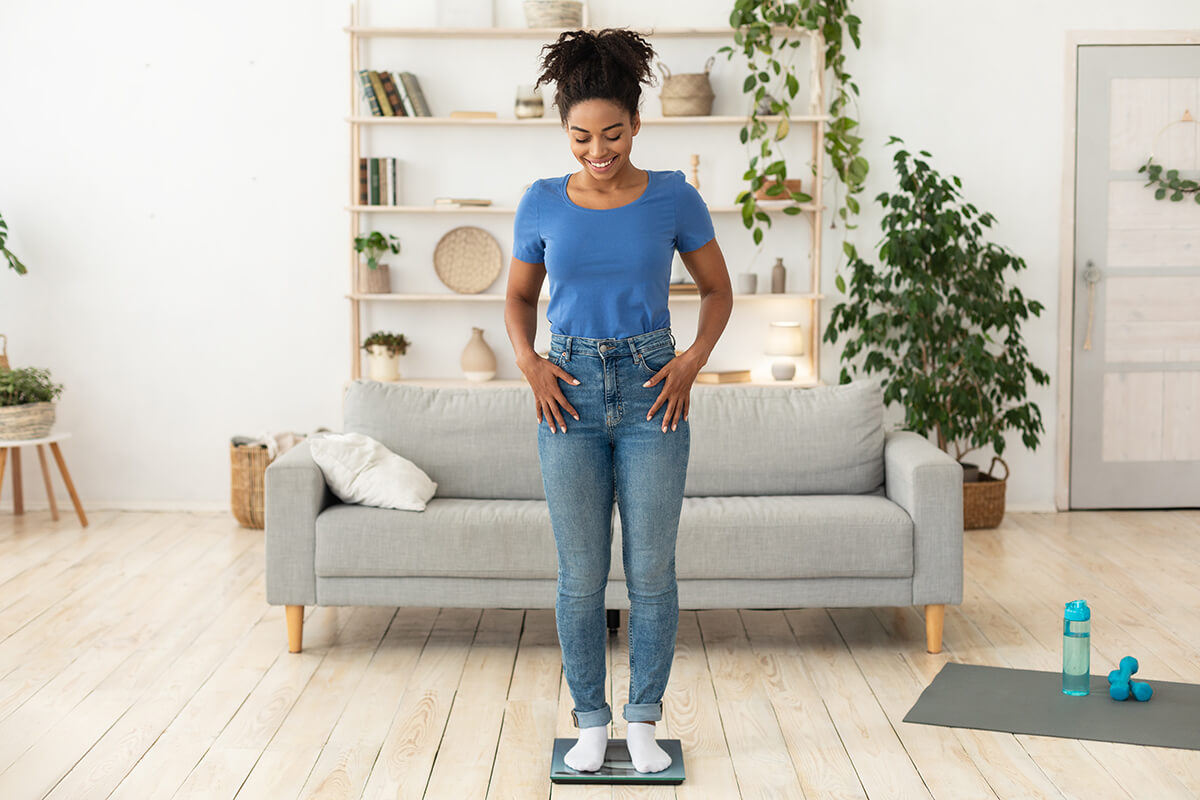How Women’s Weight Loss Can Differ from Men’s Weight Loss

Men and women who are overweight can both successfully lose those extra pounds if they plan their weight loss routines differently. Many want to know why women lose weight differently than men do. While the basic principles of weight loss such as a caloric deficit through a combination of diet and exercise are applicable to both men and women, there are some nuances to consider before coming up with their weight loss plan moving forward.
Fat Distribution can affect weight loss perception
Women naturally have a higher percentage of body fat than men. Men tend to store fat in the abdominal region, while women often store it in their hips and thighs. This fat distribution can affect how weight loss is visually perceived.
Women’s Weight Loss Can Be Impacted by Basic Genetics
Genetic makeup can play a role on whether we gain weight quicker and lose weight slower than someone else. This doesn’t mean that it is impossible to take off those unwanted pounds and fat pockets. It just means some will have to be a bit more aggressive in their weight loss approach.
Men Often Lose Weight Quicker Than Women At First
Part of the reason why most men will tend to lose weight quicker than women of the same age and body type is the amount of lean muscle mass that men typically have as opposed to the fat accumulation that a woman tends to have. Some scientists have linked this characteristic back to our prehistoric ancestors who needed those extra fat stores to ensure a healthy pregnancy and survival in a harsh time and environment.
This difference in lean mass buildup may account for why men will seem to lose those pounds faster, but this trait doesn’t last even for men. Lean mass burns more calories at a faster rate, and this is the science behind this characteristic difference between males and females.
Woman Go Through More Hormonal Changes During a Lifetime
Women’s hormonal fluctuations throughout their menstrual cycle can influence water retention and energy burn. Menstrual cycles can also affect cravings and appetite.
In addition, women’s bodies undergo significant changes during pregnancy, and postpartum weight loss can be influenced by various factors. If breastfeeding, women may require additional calories, and the process itself can contribute to weight loss.
What Women Can Do to Lose Weight More Effectively
There are some helpful things that women can do to lose those extra pounds and inches:
- Change your diet and eat healthier foods in the proper proportions. Keep in mind fad diets are usually unhealthy and won’t keep those pounds off – it’s important to change your lifestyle.
- Introduce strength training. Women should include resistance training and free weights. Many women believe that they will develop manly body characteristics but this is not true.
- Have your bloodwork checked. Women often need more iron and calcium, and deficiencies in these nutrients can affect energy levels and overall well-being during weight loss efforts.
- Consult a professional for greater impact. Dr. Tiffani Fries, DC provides individualized and holistic weight loss and nutrition counseling.
It’s important to note that the above may not apply to every individual, as there is considerable variability with each person. Weight loss is a complex and individualized process, and factors such as genetics, lifestyle, and overall health play crucial roles.
Set yourself up for success and contact us today to discuss your weight loss journey.
Dr. Tiffani Fries, DC
Dr. Fries, DC opened Genesis Chiropractic in 2002. The name of the office signifies “the beginning” of the journey to better health. She wanted to have an office that listens to people about their health concerns, and an office where patients could get individual, personalized care. With over 20 years of practice, Dr. Fries has seen how stress, diet, lifestyle, and injury can affect the human body and turn into chronic pain and illness. She focuses daily on helping patients get to the root of their problem and live healthier lives.
